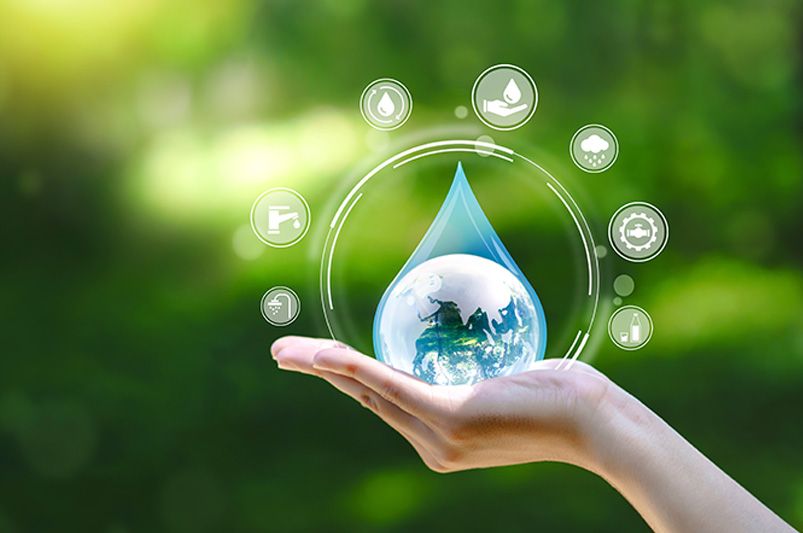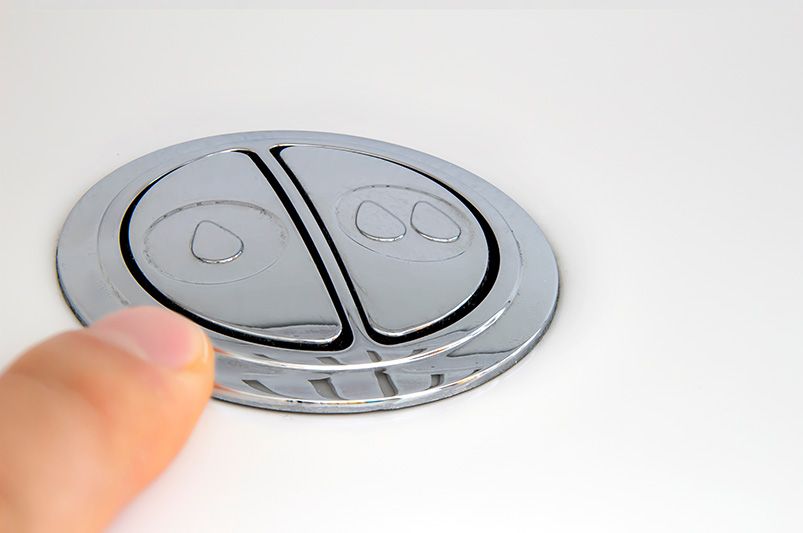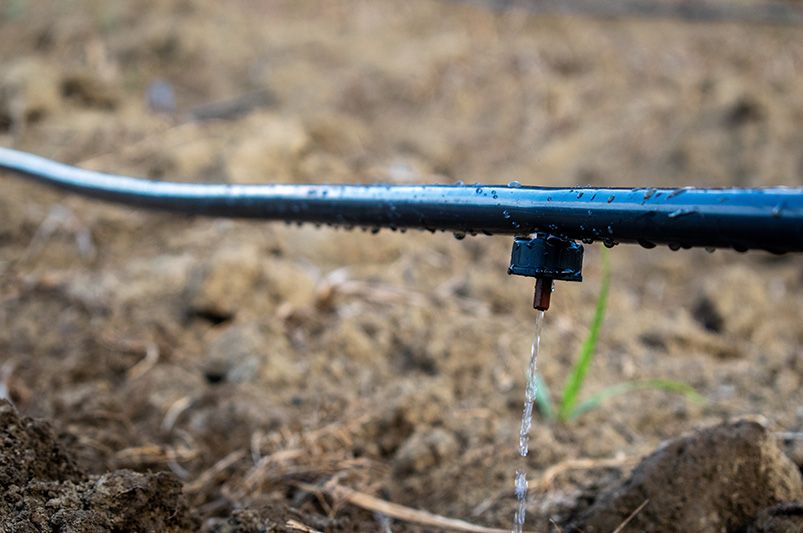
Water Conservation Rebates: Grant Opportunities in Georgia
Published: 12/11/2024 | Updated: 11/11/2024
Key Highlights
- Discover how water conservation rebates in Georgia can help you save money and preserve our valuable water resources.
- Learn about programs for residents, businesses, and agricultural entities, including toilet rebates, conservation innovation grants, and more.
- Understand the importance of water conservation in our state and how these initiatives contribute to a sustainable future.
- Find out if you qualify for residential, commercial, or agricultural water conservation rebates and how to navigate the application process.
- Get answers to frequently asked questions about water conservation rebates in Georgia.
Introduction
In this issue of Shrubhub's Blog, we'll discuss Georgia's water conservation rebates and how you go about applying for residential, and commercial programs.


The state of Georgia is dedicated to helping people save water. They offer many programs, including a well-known rebate program. This blog will discuss why saving water is important in Georgia. We will look at the rebate programs, who can qualify for them, and give a simple guide on how to apply. Join us to learn useful information that can help you save money and support a better water future for Georgia.
Understanding Water Conservation Rebates in Georgia
Imagine a future where green spaces grow even with less water. Picture lower utility bills while keeping Georgia’s water safe. Water conservation rebates in Georgia make this dream possible. These financial incentives, given by state and local governments, help people and businesses save water.
By switching to water-saving appliances, using smart irrigation systems, and choosing water-friendly landscaping, Georgians can cut their water use. They can also lower their utility costs. This helps everyone work towards a better future. With these rebates, saving water is not just a good choice, but also a way to save money.
The Importance of Water Conservation
Water is limited, and we should not overlook it. Protecting water is very important for both current and future generations in Georgia. The Natural Resources Conservation Service (NRCS) reminds us that saving gallons of water today helps create a better water supply tomorrow.
When we conserve water, we help reduce stress on our rivers, lakes, and aquifers. This helps ensure we have enough water for drinking, farming, and industry. Also, being responsible with water reduces the energy needed for treatment and distribution. This, in turn, lowers our carbon footprint and leads to a healthier environment.
By using water conservation practices, we play a key role in saving this vital resource. This helps create a brighter and more sustainable future for Georgia.
Overview of Rebate Programs Available
Georgia has many rebate programs that help people save water. One well-known option is the Toilet Rebate Program. This program works with the Metropolitan North Georgia Water Planning District. It offers money to replace old toilets with WaterSense models that save water.
By joining this program, homeowners and businesses can cut down on the water they use while saving money on their bills. Besides toilet rebates, there are several other programs encouraging water conservation in different areas.
These programs make it easier and cheaper for people in Georgia to adopt water-saving practices and technologies. This way, everyone can help make a positive change.

Eligibility Criteria for Water Conservation Grants
To access these valuable financial incentives, you must meet certain eligibility requirements. These requirements change based on the program, the type of property you have (like residential, commercial, or agricultural), and the specific water conservation measures you are using.
Usually, applicants need to be customers of the water providers that participate in the program. You also have to follow the program’s rules for using water-efficient fixtures and technologies.
Qualifying for Residential Rebates
For homeowners who want to save water, there are rebate programs that provide great incentives. To get these rebates, homeowners usually have to meet some basic eligibility requirements. This often means living in the service area of a water provider that is part of the program and having a single-family or multi-family home.
One important part of qualifying for these rebates is that any steps you plan to take for water conservation must follow the program rules. This can include putting in WaterSense-labeled fixtures or doing a household water assessment. Knowing and meeting these criteria can help you get approved and access helpful financial support.
By using these rebates, homeowners can use less water, decrease their bills, and help create a more sustainable water future for Georgia.

Opportunities for Agricultural and Commercial Entities
Georgia knows how important its farming and business sectors are in saving water. Because of their large water use, the state offers special programs for farmers and commercial businesses.
One example is the Conservation Innovation Grants. These grants give money to help creatively use new technologies aimed at saving water in farming. They let farmers and ranchers try the latest ways to improve irrigation, manage water better, and cut down on water use. This helps them do better in their jobs and make more money. For businesses, there are incentives to upgrade to equipment that uses less water and to apply water-saving plans.
When businesses invest in these methods, they help the environment and save money in the long run while improving how they operate.
How to Apply for Water Conservation Rebates
Navigating the application process for water conservation rebates in Georgia is meant to be easy and clear. Before you start the application, it is important to gather all needed documents. This can include your water bill, proof of where you live or run your business, and details about the water-saving devices or fixtures you want to install.
When you have your documents ready, the application process usually involves filling out an online form or a printable one from the local government or your water provider. Each application will ask for important details about your property, the water conservation project you plan, and the type of rebate you want.
By following the steps, giving accurate details, and submitting your application when it's due, you can boost your chances of success.
Step-by-Step Application Process
- Research and Choose a Program: Start by looking into the water conservation rebate programs in Georgia. Check the program websites for details about eligibility and find their contact information for any questions.
- Collect Required Documents: Gather important items like your water bill, proof of property ownership or a lease, and information on the water-saving devices you want to install. This will help make the application process quicker.
- Fill Out the Application: Go to the official government organization's website (.gov website) to get the application form. Make sure to provide clear and correct information.
Required Documentation and Deadlines
When submitting applications for water conservation rebates, it's essential to include all required documentation to avoid processing delays. Typically, you'll need to provide proof of residency, such as a driver's license or utility bill, and documents verifying the purchase and installation of water-efficient appliances or fixtures.
|
Document |
Description |
|
Proof of Residency |
Utility bill, driver's license, or lease agreement |
|
Product Receipts |
Receipts for purchased water-efficient appliances or fixtures |
|
Installation Verification |
Invoice or statement from a licensed plumber verifying installation |
Be aware of program deadlines, as they often align with the fiscal year or specific application cycles. By carefully reviewing the program guidelines provided on the official government organization's website (.gov website), you can ensure timely submission.
Conclusion
Water conservation rebates and grants in Georgia are important for caring for our water supply. When people and businesses see why water conservation matters, they can help protect the environment and save money. There are programs for homes as well as farms and businesses, and they all work towards a cleaner future. To get these grants, you need to check if you meet the eligibility rules and carefully follow the steps to apply. Supporting water conservation helps preserve our resources and builds a community that cares about the environment. Begin your path to better water use today.
Frequently Asked Questions
What are the most common projects eligible for water conservation rebates?
Common projects that qualify for support include improving efficient irrigation systems. You can also install fixtures that have a WaterSense label. Another option is to apply outdoor water use reduction strategies. This can involve using xeriscape principles, rainwater harvesting, and creating drought-tolerant landscapes.


